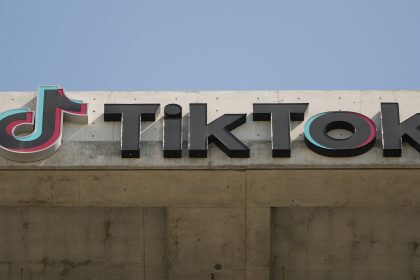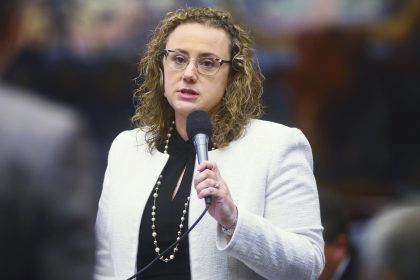Building the Market Solution: ‘Clean Social Media’

WASHINGTON — Nearly two decades on social media and the issues of misinformation and harassment are glaring, according to Appu Esthose Suresh, the founder and chief executive of Pixstory.
He’s one of the many social media company founders working to fix the issues of misinformation and harassment larger platforms like Facebook, Twitter and Instagram have seen plaguing them over the past few years.
He calls his platform a type of “clean social media,” which is a direct reference to climate change and clean energy as a solution. Similarly to how legislators were slow to act on regulations to quell climate change, they aren’t acting fast on the perils of misinformation and bullying.
“Right now we are the first electric car of social media,” Suresh said.
And just like certain car manufacturers led the way and saw profits from electric cars influence other companies to create them as well, “we are creating pressure for others to alter their platforms,” he said.
His company is seeking to bring the social back to social media, encouraging conversations, not shouting matches.
Suresh admitted during his conversation with The Well News that he isn’t on platforms like Facebook and Twitter because posts and comments are often inflammatory digs meant to go viral.
He pointed to the testimony last fall from Facebook whistleblower Frances Haugen where she told members of the Senate that Facebook’s algorithm gave more of a boost to negative posts that support negative views like violent political extremism and body dysmorphia.
“I don’t have the bandwidth to fight,” Suresh said.
Instead, Pixstory uses a three-part moderation approach with artificial intelligence to weed out outright hate speech. If the AI doesn’t catch something, the platform builds a dialogue with the “support” and “challenge” buttons on each post so people can share if they think it’s contentious.
If a post has enough challenges and goes against the platform’s guidelines, a human moderator can see the challenges and support written for each post to make an informed decision, Suresh explained.
The moderation process was created through the idea that “we would like to believe you, [the poster], made a mistake, you didn’t know this is something that is hurtful to the other person,” Suresh said.
And people can learn from mistakes and edit their posts, he said.
He wants Pixstory to foster more decisions like those made by Beyonce and Lizzo this past summer to remove the word “spaz” from their songs after the disabled community shared they see that word as a slur.
That ability to listen to criticism is vital because “through dialogue you build trust,” he said.
There’s also a third option called “notes” where people can leave other comments about the posts.
And while Suresh is confident there’s a market for people who want a platform that caters to this middle ground and fosters conversation, the hardest part of creating this platform has been building its audience, he said.
He needs people who have the same vision to “spread the word, build a community and try it out.”
His goals aren’t to get everyone on his platform, but instead to attract others who want the same middle ground.
“We are bringing you back to [social media] 101: trying to have a good conversation,” Suresh said.
The company is growing slowly but staying profitable, he said. He hopes it will reach about 500 million people.
“We prioritize sustainable growth and sustainable profits instead of unlimited growth and unlimited profits,” Suresh said.
Madeline can be reached at [email protected] and @MadelineHughes























